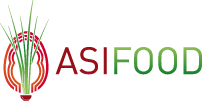AsiFood project is organised into 8 workpackages (WP). There are 3 WPs dedicated to project preparation (WP1) and project management (WP8) and quality monitoring (WP7), and 5 WP for the “technical” part of the project :
- WP2 & WP5 : Development of relationships between professionals and universities;
- WP3 and WP4 : Development and modernisation of curricula related to food safety & food quality, adapted to local economic needs,
- WP6 : Dissemination to other ASEAN universities of the project results & outcomes,

WP1 : Preparation
By M4, partnerships agreements shall be signed between SUPAGRO and all partners.
Key project staff will be designated and the first Steering Committee (SC1) will take place in Hanoi in M4. During SC1, workplan & communication plan for the whole project will be agreed upon. Partners will be trained on Erasmus+ specific financial and admin rules (documents translated into local languages when necessary). The external technical auditor and BOKU (WP7 leader) will attend to explain and discuss how the project will be evaluated (indicators, reporting…). Final quality monitoring plan will be agreed upon by all partners by M6.
WP2 & 5 : development of relationships with professionals
It will be done in 2 phases
- Current relationships between universities and the professionals (public and private) will be surveyed. Survey strategy and questionnaires will be elaborated jointly during webconferences (act 2.2). min 160 professional will be surveyed (2.3 & 2.4), results presented to various stakeholders (2.5 & 2.6) and recommendations made (2.6) by M11. A important workshop with all rectors & deans will then be organised (2.7) and will focus on change management towards professionalisation.
- The workplan will be enforced in WP5, after SC2. The most likely activities are already foreseen such as the implementation of job placement surveys (5.2), improvement of internships practices (5.3), and experience sharing seminar on job forum & internship practices (5.4). University-Industry LinkageOffices (UILOs, 5.1) will be mainly in charge of these activities. While setting up the UILOs within universities,the involvement of professionals in their steering committee will be strongly recommended wherever possible.
WP3 & WP4 : Development and modernisation of curricula related to food safety & food quality
To strenghten the connection between professionals and universities, the development of adapted training programs is key. WP3 general aim is to survey the skill’s needs of professionals regarding food safety and food quality following a participatory approach, and to make curricula recommendations (3.6) by M14. It is also, and importantly, to implement “for real” the training engineering methodology (TE). Partners will thus experiment TE in their context. A note that ULg and VNUA(WP3 leader) are starting a master program in Hanoi with an important part related with food safety & food quality. Their previous work (skill’s needs analysis; designing adapted training program…) is of utmost importance for this project.
AsiFood proposes to create 3 training modules from 5 to 15 ECTS each. These 3 training modules are likely to focus on :
- Food safety & quality upstream of the food value chain
- Food quality and food safety analyses,
- Food safety in the food processing factory
The more specific contents of the modules will be defined by 3 workgroups, each consisting of 4 experts (EU, Thai, Cambodian, Vietnamese) (4.1 & 4.5).
Conditions for credit transfer for these modules between partner’s universities will be decided by M18, after academic validation of modules and curricula (4.6) and integration of the modules to current or new masters (act 4.7).
Prior to building their courses (by M16, act 4.5), 24 teachers will be trained in EU to technical matters (4.3) and to new didactic methods (4.4). Back home, they will also be mentored by the workgroups for 3 months. A note that teachers with insufficient English or French level will follow intensive EN/FR courses fom the project beginning (4.2).
Equipments required for practical training activities will be purchased by each university by M16 (4.8).
The first group of master’s students (~20 students per university) will start the programme in M20.
WP6 Dissemination :
The 3 training modules will be turned into Short Technical Training Courses for professionals (STTC) by M20 (act 6.2). STTC will last 2 weeks maximum and will be taught and evaluated at least once in each university (6.3). The 3 first sessions will be taught by both EU and AIT experts. One of these 3 STTC will be turned into distance learning module by M30 and disseminated through the ASEAN. It will also be taught at least once, coordinated by AIT and one EU partner. 2 other ELearning modules will also be created, disseminated, and coordinated and evaluated: one on new didactic tools (5.5 & 6.1) and another one on training engineering (6.5 & 6.6). For wider dissemination in both English and French speaking Asian universities, all ELearning modules will be available in French and English.
The business models for all these training modules (STTC & ELearning) will be defined by the SC : shall trainees pay to attend? how much? how to reach the targets? who coordinates?…a clear business model is indeed of utmost importance for a good sustainability.*
16 public awareness 1 day workshops will take place (2 per uni, act 6.9), one around M16 and one towards project end. Project results will also be discussed on a regular basis with local authorities and media (6.10).
All project’s acticities will be evaluated by the beneficiaries. Therefore all students and trainees and “Elearners” will be given the opportunity, probably via online questionnaires, to evaluate their courses and training.

